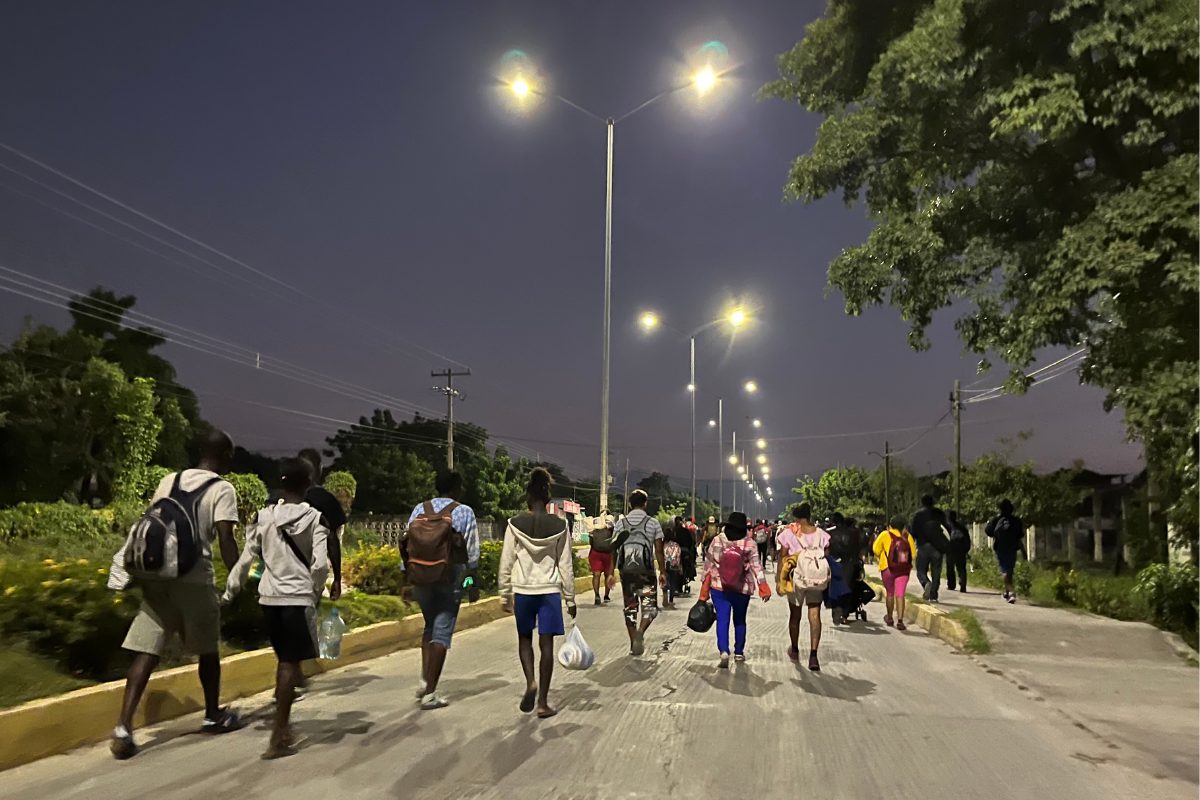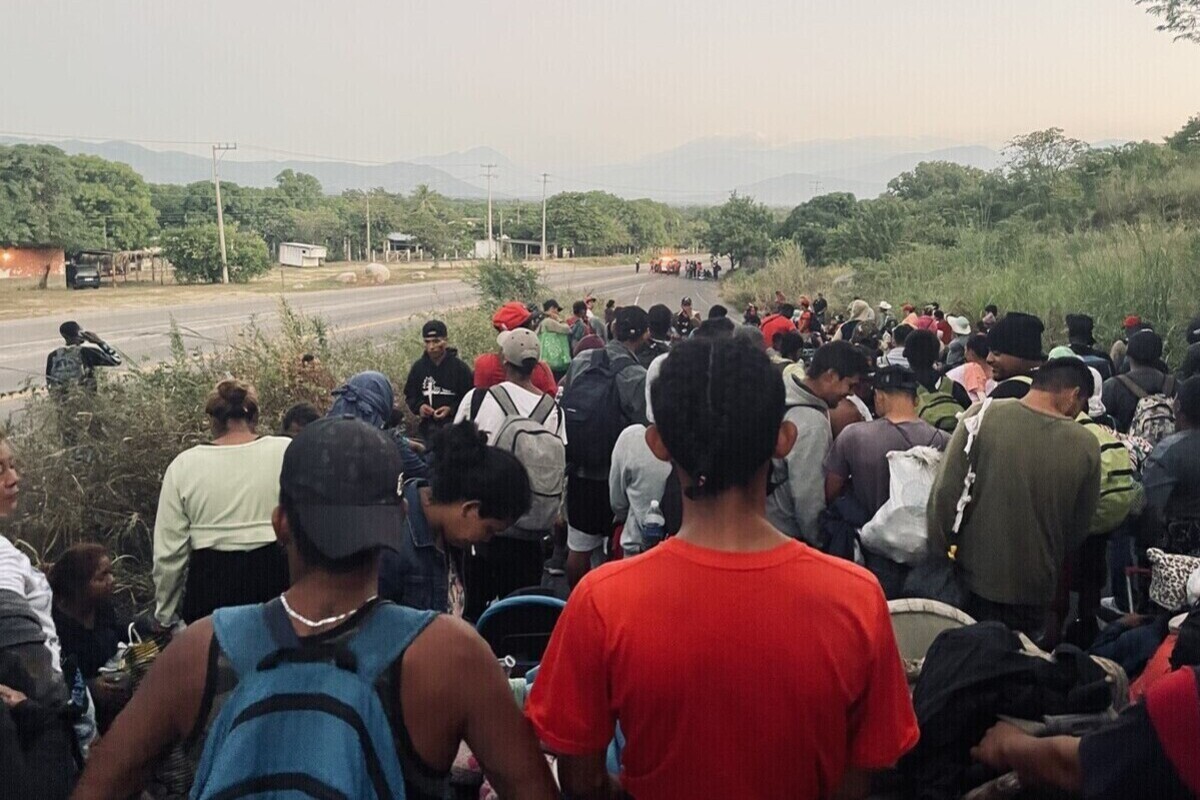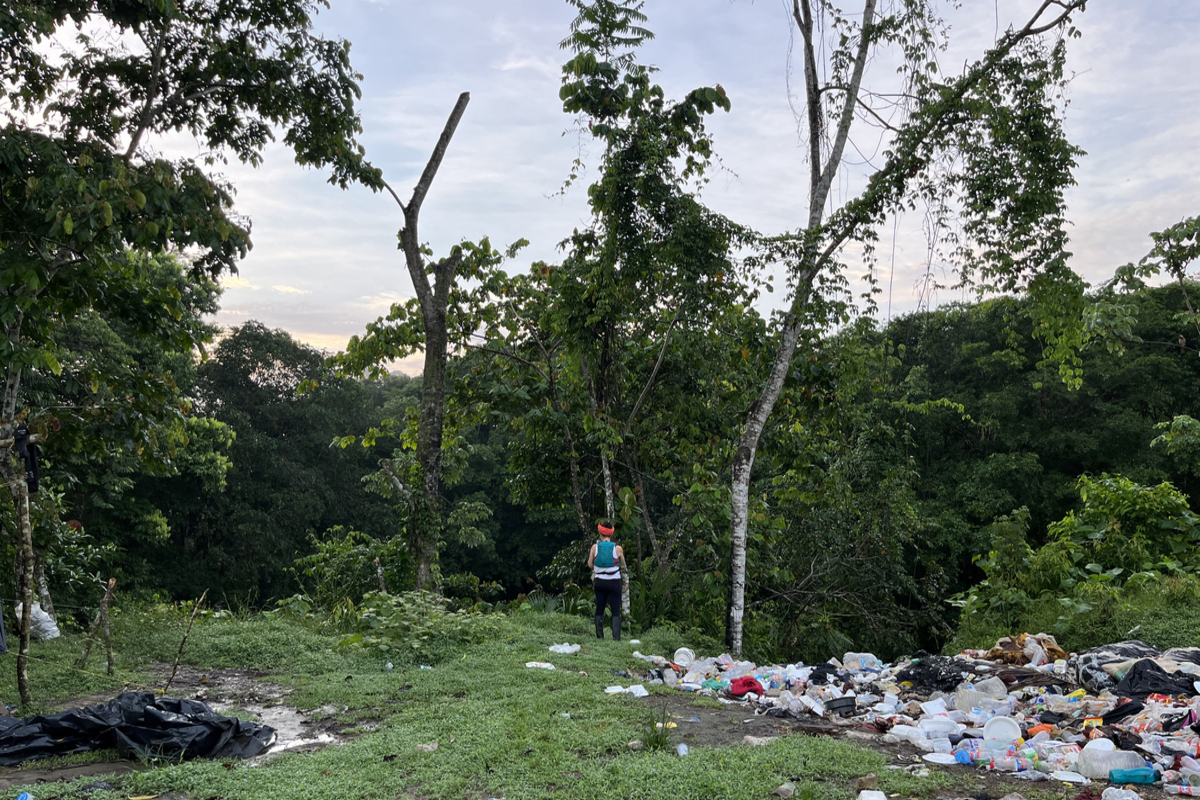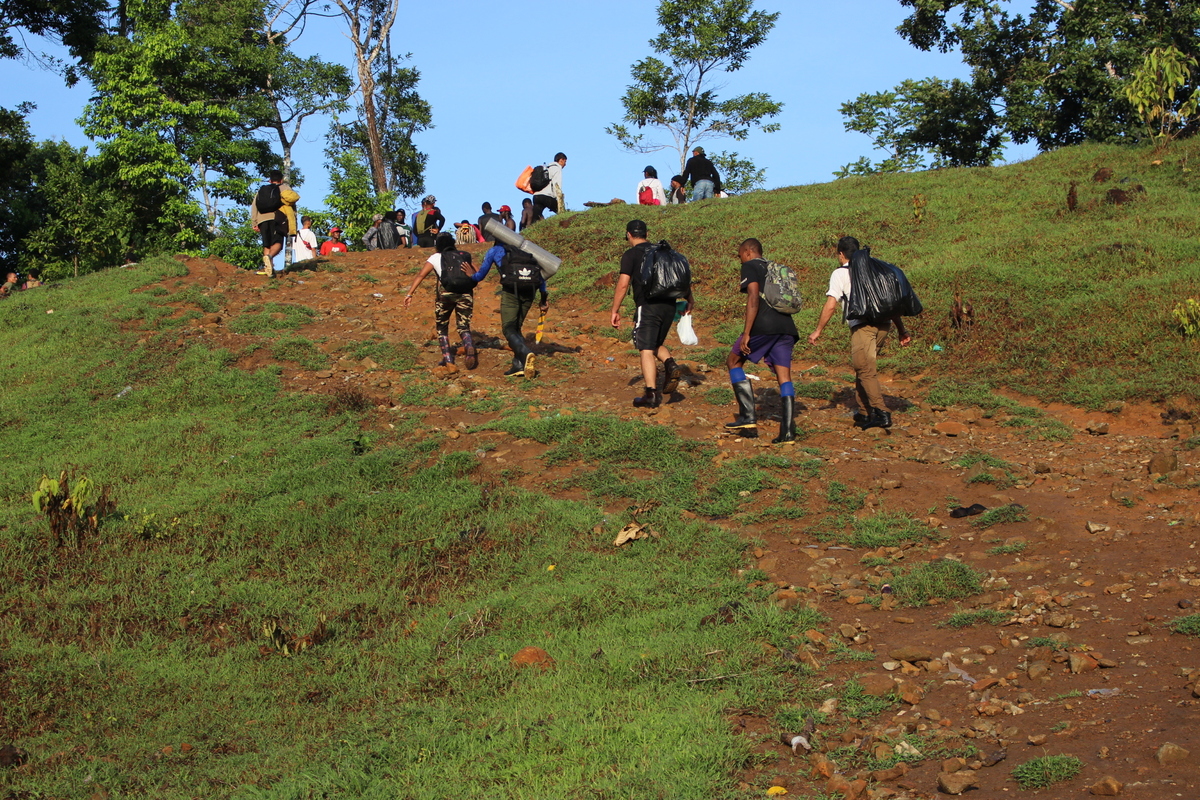

Photo by Yurema Perez-Hinojosa/Futuro Media
On the third installment of our award-winning series “The Moving Border,” we return to Tapachula, Mexico, nearly two years after our last episode—and the start of a worldwide pandemic.
When we last visited Mexico, we explored how then-President Donald Trump’s policies had achieved what his promises to “build a wall” hadn’t: his policies were successful in creating an at times impenetrable figurative wall blocking asylum seekers from reaching the United States. A wall that started much further south from the U.S.’ doorstep, aided in cooperation by Mexico’s own copycat immigration strategies, that sought to contain people at its own southern border, in Tapachula.


Photo by Yurema Perez-Hinojosa/Futuro Media
Many of the people we spoke with then hoped that a Biden presidency would bring some relief to their months, and sometimes years-long, wait at the border as they sought to present their cases.
This episode explores how things have —or have not— changed for asylum-seeking migrants in Mexico in the first year of the Biden presidency.


Widelene and her husband Angjar Felix sit on a sidewalk at a public park in Chahuites, Mexico with their two youngest children. They traveled together along with their teenage sons from Brazil all the way to Mexico, in hopes of reaching the U.S. border to ask for asylum. (Photo by Yurema Perez-Hinojosa)
We travel to a small town in the state of Oaxaca where we meet up with a “caravan” of families that’s spent weeks on their feet, walking towards the U.S., banded together for safety. In the news, we hear reports that strike fear into listeners about these caravans’ intentions, but at a park where families sleep together crowded over hard sidewalks, we encounter a very different image of what compels these large groups of strangers to move as a unit.
And we witness how the make-up of the asylum seekers themselves is also shifting.


Maria Hinojosa stands at the edge of Las Tekas, a migrant camp which serves as a resting place for migrants before they begin their journey into the Darién to cross the border between Colombia and Panama. The trash around her has accumulated over several months of visitors – those running the camp say they’re planning to haul it back into town and dispose of it. (Photo by Yurema Perez-Hinojosa)
There are now more Haitian migrants arriving in Tapachula than there were two years ago, according to COMAR, The Mexican Commission For Refugee Assistance, which is tasked with processing asylum petitions in Mexico.
Last year, the majority of requests for asylum were actually filed by Haitian nationals, who became the number one petitioners for the first time ever in Mexican history.


Asylum seekers – most from Haiti and including others from Nigeria and Ethiopia – begin their trek into the Darién Gap from Las Tekas, a migrant camp at the edge of the jungle accompanied by Colombian guides. Guides will walk with them for several days to the border with Panama where they will turn back and the group will continue on their own. (Photo by Yurema Perez-Hinojosa)
Then, we travel further south: to the Darién Gap, at the border of Colombia and Panama. There we embark on a difficult journey to try and understand the particularly challenging conditions that Black migrants are facing on their long journey through South America as they try to reach the United States.
This episode was produced by Julieta Martinelli and edited by Andrea Lopez-Cruzado. Benjamin Alfaro in Mexico and Carlos Villalon in Colombia are associate producers. Production assistance by Elisa Baena, Monica Garcia and Yurema Perez-Hinojosa.
“The Moving Border” was co-produced with Futuro Unidad Hinojosa Investigations, which gets support from the W.K. Kellogg Foundation and Hispanics in Philanthropy. Maria Hinojosa and Diane Sylvester are executive producers of Futuro Unidad Hinojosa Investigations.
***
Latino USA with Maria Hinojosa, produced by Futuro Media, is the longest-running Latino-focused program on U.S. public media.


